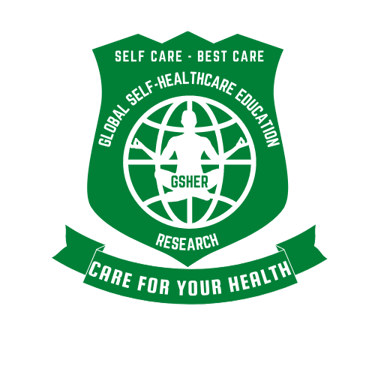The Art and Science of Self-Healthcare: A Harmonious Balance
ସ୍ୱୟଂ ସ୍ବାସ୍ଥ୍ୟ ସେବା ର କଳା ଏବଂ ବିଜ୍ଞାନ… ଏକ ସୁସଙ୍ଗତ ସନ୍ତୁଳନ
HEALTH
Dr Biswajit Mohapatra
8/15/20242 min read


In today's fast-paced world, the pursuit of well-being frequently straddles the line between art and science. Self-healthcare, a notion gaining steam as people attempt to take control of their health, is a realm where these two professions blend seamlessly.
Science of Self-Healthcare
Self-Healthcare is heavily based on scientific ideas. It draws on various medical research, nutritional science, psychology, and physiology. The scientific approach to Self-Healthcare includes:
Understanding Cellular Health.
Modern medicine emphasizes the significance of cellular health. Advances in epigenetics and molecular biology have revealed how our lifestyle choices influence gene expression and general health. People can improve their cellular health by focusing on elements such as nutrition, exercise, and stress management.
Nutrition & Metabolism
Nutritional science explains how different nutrients influence our metabolism, energy levels, and illness prevention. A well-balanced diet high in key vitamins and minerals improves overall health.
Physical Fitness
Exercise science emphasizes the significance of regular physical activity in preserving cardiovascular health, muscle strength, and mental well-being. Physical activity, from aerobics to strength training, should be incorporated into everyday routines for optimal health.
Psychological Wellbeing
Psychological research emphasizes the link between mental and physical health. Mindfulness, cognitive behavioral therapy, and positive psychology are all tools for building emotional resilience and managing stress.
The Art of Self-Healthcare
While science offers the foundation, the art of Self-Healthcare entails personalized and intuitive activities that improve quality of life. This aspect contains:
Personalization
Self-Healthcare isn't a one-size-fits-all method. It demands a grasp of one's own specific wants and preferences. The art is in adapting health approaches to specific lifestyles, goals, and values.
Holistic practices
Integrating activities like yoga, meditation, and therapeutic arts adds a holistic dimension to Self-Healthcare. These exercises not only enhance physical health, but also promote mental clarity, emotional balance, and spiritual development.
Mindful living.
The practice of mindful living entails being present and involved in daily activities. Whether it's savouring a meal or enjoying nature, mindfulness improves the quality of life and fosters a stronger connection with oneself.
Creative Expression
Creative hobbies like painting, writing, and music can be healing. These creative outlets allow for emotional release, promote self-esteem, and improve general well-being.
The Harmonic Balance
The actual meaning of self-healthcare is to balance the science and art of well-being. Individuals can live a balanced and meaningful life by combining evidence-based methods with personalized and innovative ways.
Science gives the skills and information required for optimal Self-Healthcare, while art allows for individuality and emotional enrichment. Together, they provide a complete approach that enables people to take control of their health and live productive lives.
By embracing both the science and art of Self-Healthcare, we not only enhance our physical and mental health, but also create a stronger feeling of self-awareness and fulfilment. This harmonic balance is essential for prospering in today's world and reaching a really holistic sense of well-being.
Dr. Biswajit Mohapatra, MS,FMAS
Chairman, GSHER
